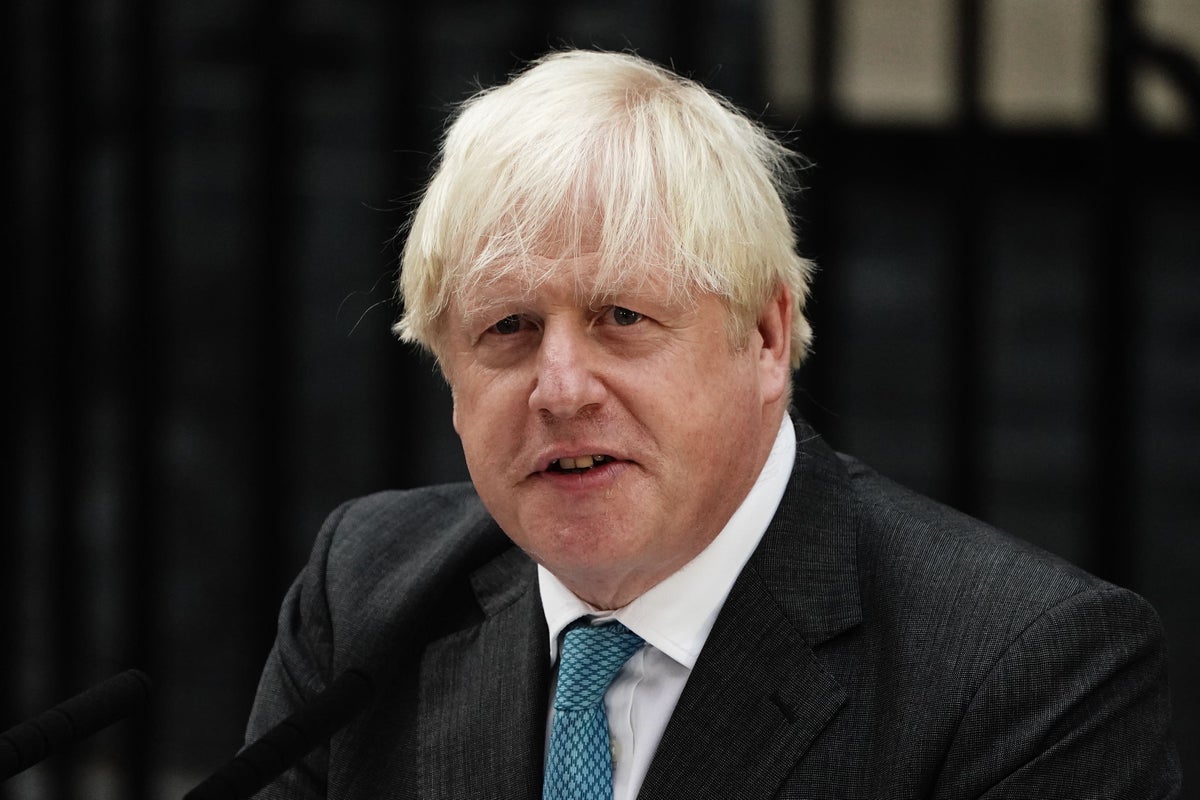
Boris Johnson has urged people to “shrug off all this negativity and gloom-mongering” about Brexit amid dire economic warnings on the third anniversary of leaving the European Union.
The then prime minister who formally led the UK out of the bloc promised the “opportunities are huge” as his successor Rishi Sunak insisted “huge strides” had already been taken.
But their upbeat remarks contrast with recent polling suggesting growing unhappiness with the way Brexit has turned out and disputes continuing over the Northern Ireland Protocol.
On the anniversary, the International Monetary Fund (IMF) warned Britain’s economy will slam into reverse and see the worst performance of all advanced nations, including Russia.
While its World Economic Outlook did not mention Brexit, economists did link the dire forecast to exiting the single market with the UK’s largest trading partner.
Paul Johnson, the director of the Institute for Fiscal Studies think tank, told BBC Radio 4’s Today programme: “There are a few things which are affecting us more than other countries; one in particular actually is the loss of people from our labour force.
“We’ve heard quite a lot about the fact that we’ve lost 500,000-plus people from work, people retiring early, immigrants not coming in from the European Union and so on. That’s not affecting any other country in Europe.”
The “continuing challenges from Brexit” and the higher interest rates were also issues, the economist added.
But Mr Johnson, who was ousted from No 10 less than three years after leading the Tories to a huge majority, insisted “the opportunities are huge”.
“Let’s shrug off all this negativity and gloom-mongering that I hear about Brexit. Let’s remember the opportunities that lie ahead, and the vaccine rollout proves it,” he said.
In a social media video, he insisted the UK’s coronavirus vaccination rollout was as rapid as it was because “we’d taken back control” of the Medical Health Regulation Agency (MHRA).
“We were able to license that vaccine faster than any other European country and that gave us a crucial edge,” he said.
“So today, on Brexit Day, as we look back at that vaccine rollout, let’s also look forward to all the other ways in which we can change our country and our economy for the better.”
At the time, MHRA chief executive Dr June Raine said that “we have been able to authorise the supply of this vaccine using provisions under European law”, which then remained in place.
On Tuesday, the EU’s former Brexit negotiator Michel Barnier said there had been “no added value to Brexit” as he praised Labour leader Sir Keir Starmer as a “European”.
“I think that Keir Starmer as many, many politicians, even in the Tory Party, know that to face some global challenges, we have to work at a European level,” Mr Barnier told LBC radio.
Sir Keir has pledged to “make Brexit work” by improving the “poor deal” Mr Johnson negotiated.
Guy Verhofstadt, who chaired the European Parliament’s Brexit steering group, said he hoped the UK can rejoin the EU within five years and made some more incendiary remarks.
The former prime minister of Belgium told LBC: “A united Europe, certainly on defence matters, would make an enormous difference. I think maybe without Brexit, maybe it was no invasion.”
While Russia launched its more widespread invasion of Ukraine last February, Vladimir Putin annexed Crimea in 2014.
Downing Street dismissed Mr Verhofstadt’s comments.
“Putin’s illegal invasion has nothing to do with Brexit,” the Prime Minister’s official spokesman said.
“In fact, the invasion has demonstrated the UK’s commitment to European security.”
In earlier remarks, Mr Sunak argued the UK is confidently forging a new path as an “independent nation”.
He pointed to the opening of eight new freeports, plans to review or abolish bureaucracy and the overhaul of the regime for business subsidies as among the benefits.
But there have been a series of signs pointing towards shifting public opinion since the UK voted to leave by 52% to 48% in the 2016 EU referendum.
A poll published by Ipsos on Monday found 45% thought Brexit was going worse than they expected, up sharply from 28% in June 2021.
Its interviews with 1,000 British adults last week included just over one in four (26%) of those who voted Leave in the 2016 referendum.
Fewer than one in 10 (9%) – down six points on 2021 – said it was working out better than expected.
Nearly two in five (39%) said it was meeting their expectations, a seven-point drop.







